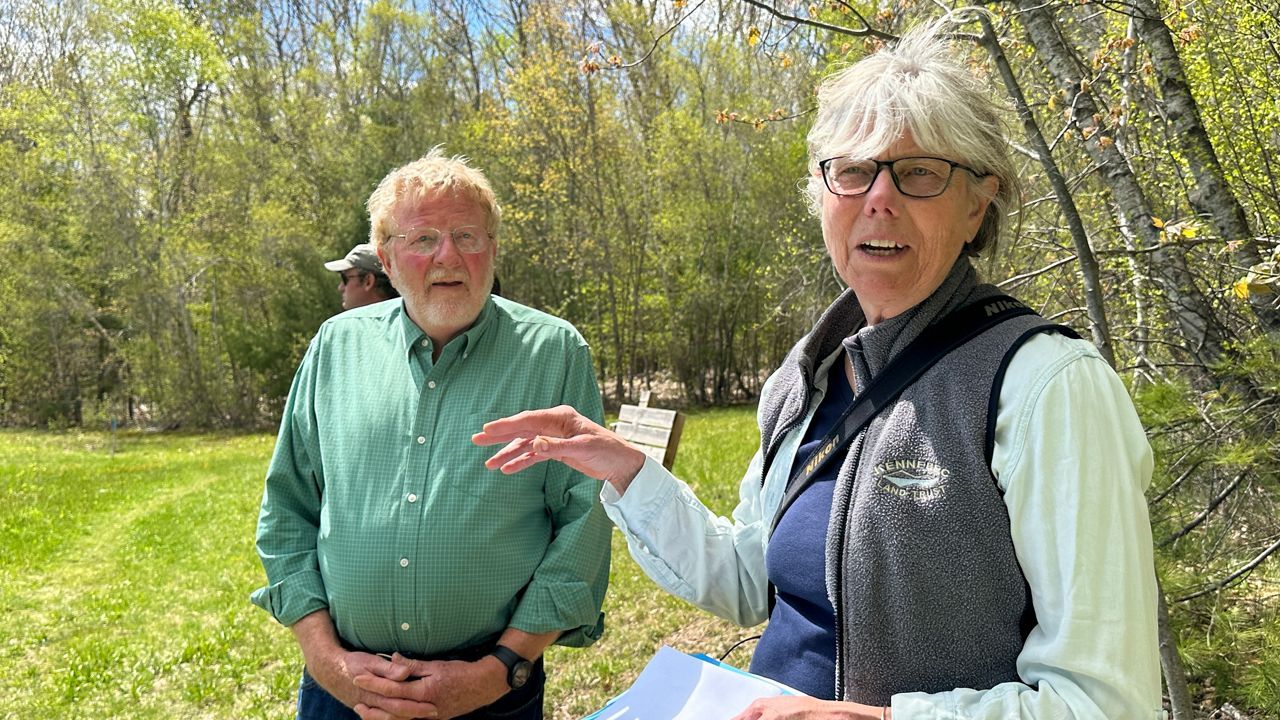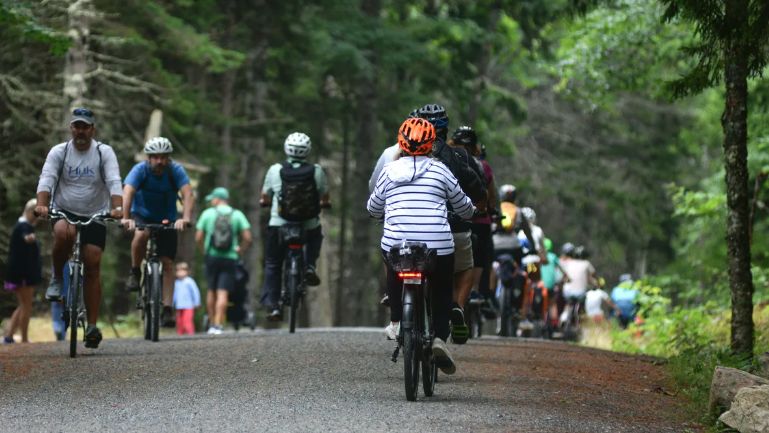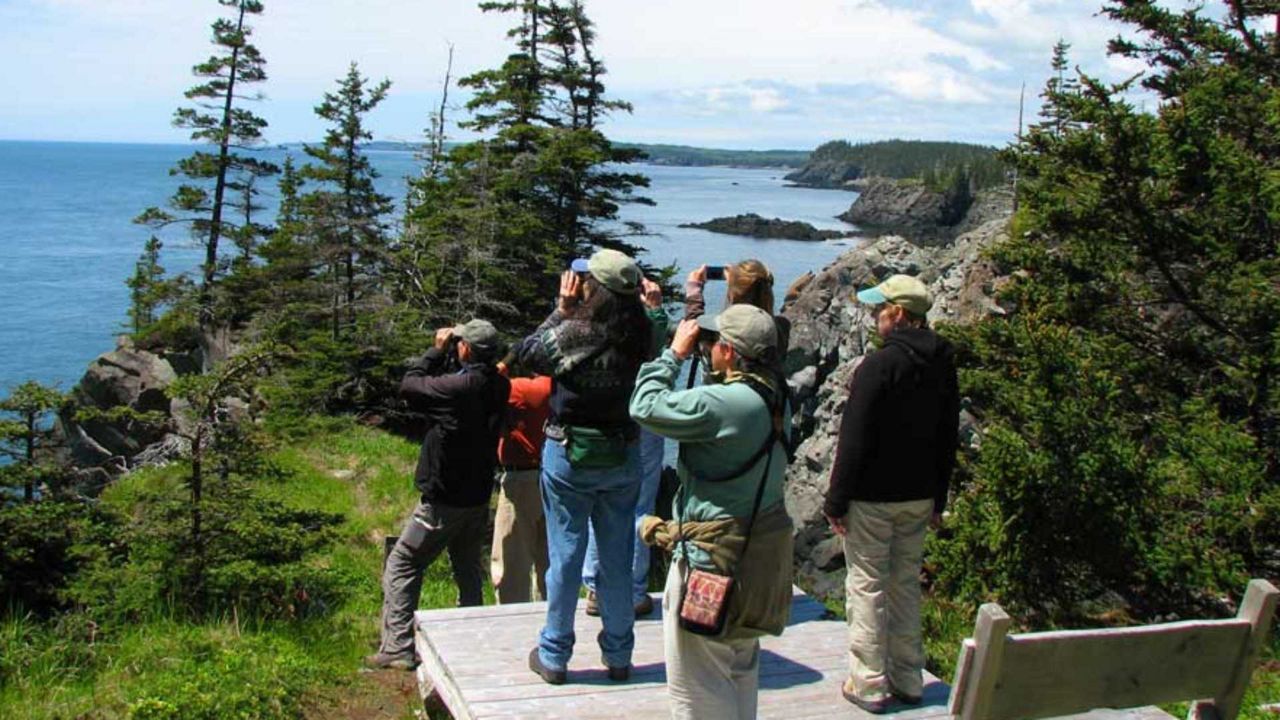As she walked on a trail in Augusta’s Howard Hill Historical Park, Theresa Kerchner pointed out the tree roots that crisscrossed the path.
There were rocks too. And deep ruts good for turning an ankle.
“This is really hard for a lot of people to walk on,” said Kerchner, executive director of the Kennebec Land Trust. “It will just be much nicer when it’s level.”
Kerchner is working with the cities of Augusta and Hallowell on a plan to turn the path into a universal access trail that can be used by those in wheelchairs or others with mobility challenges.
It’s the continuation of a collaboration that began in 2017 when the land trust donated the 164 acres of forest to the city of Augusta. With stunning views of the State House, the land in the heart of the city has been permanently protected from development.
The plan is to raise $1 million to convert a roughly one-mile trail into a wide and level path, build a parking lot near the entrance on Ganneston Drive and set aside some funds for future needs, Kerchner said.
The ball is expected to get rolling in the next month or so when Augusta considers its capital improvement plan.
Community Services Director Earl Kingsbury said the city hopes to include $300,000 for the parking lot in the capital plan, which will likely go before city council in June.
If council gives it the go-ahead, voters will consider the expenditure in November as part of a request to borrow money for capital needs, he said.
At the same time, voters statewide will consider a $30 million trails bond, which if passed, could be another source of revenue for the Augusta project.
Kingsbury said he’s optimistic the parking lot could get done next summer, paving the way for the universal access trail.
“Every and anybody that wants to get outside to recreate should have the opportunity to do that,” he said. “It’s just good for the soul.”
The land trust — which has conserved nearly 7,700 acres with 58 miles of trails in 21 communities — chose to build the universal access trail in Augusta because it not only serves as home to 18,000 people, but draws in thousands more state workers every day, Kerchner said.
“Our job, like everyone these days, we’re very focused on equity and benefits for all of our communities,” she said. “This is where we can make the biggest difference.”
The land in Augusta not far from the Kennebec River served as fertile hunting and fishing grounds for the Wabanaki for thousands of years before European settlers came to the area, according to the land trust.
It was purchased by Samuel Howard, brother of city founder Capt. James Howard, in the late 1700s.
He named the area “Betsy Howard Hill” in honor of his daughter. In the late 1800s, William Howard Gannett and his wife Sarah lived on 500 acres of the land.
Between 1930 and 1969, Howard Hill was designated as a state game preserve. Efforts by the state to purchase 200 acres failed in the 1970s, leading to a subdivision on much of the land.
Then in 2009, the land trust and the city of Augusta worked to conserve 164 acres, which is the parcel the land trust donated to the city eight years later.
The trail connects to Hallowell through the Effie L. Berry Conservation Area, an eight-acre field donated to the city by Mastway Development in 2017.
Hallowell Mayor George Lapointe said the connection to Augusta provides another outdoor amenity for area residents interested in bird watching, dog walking or commuting to work on foot.
“Opening up the accessibility for other people allows them to have those same kinds of benefits,” he said. “Getting out in nature. Bird watching. Getting out and getting some fresh air.”








